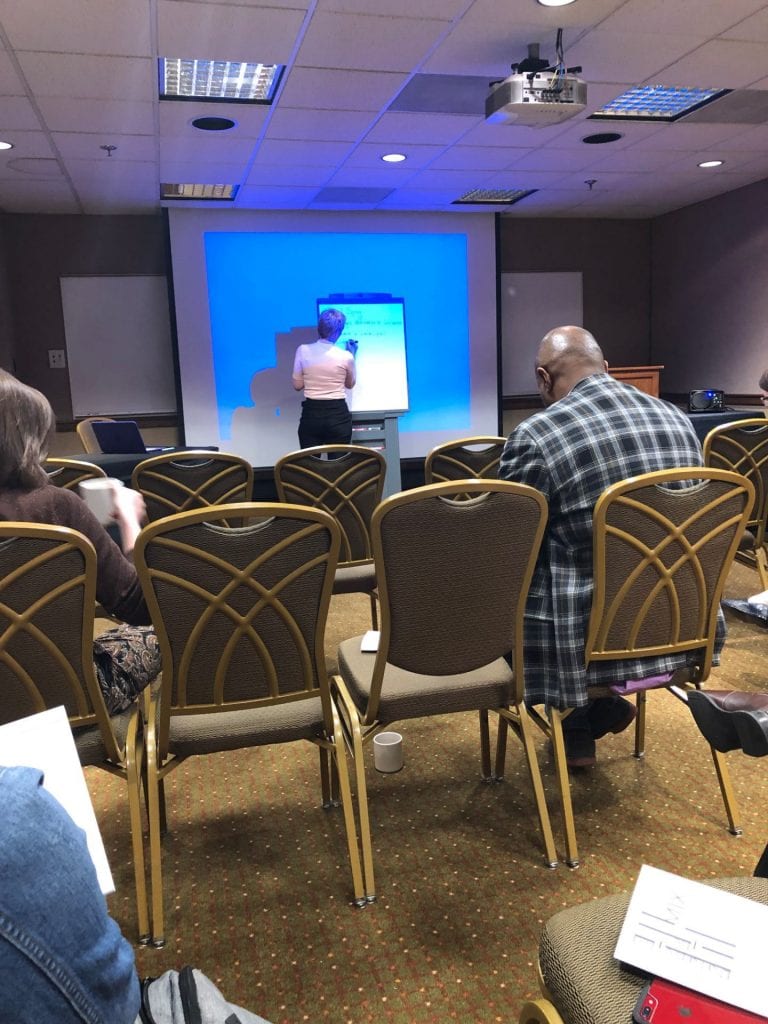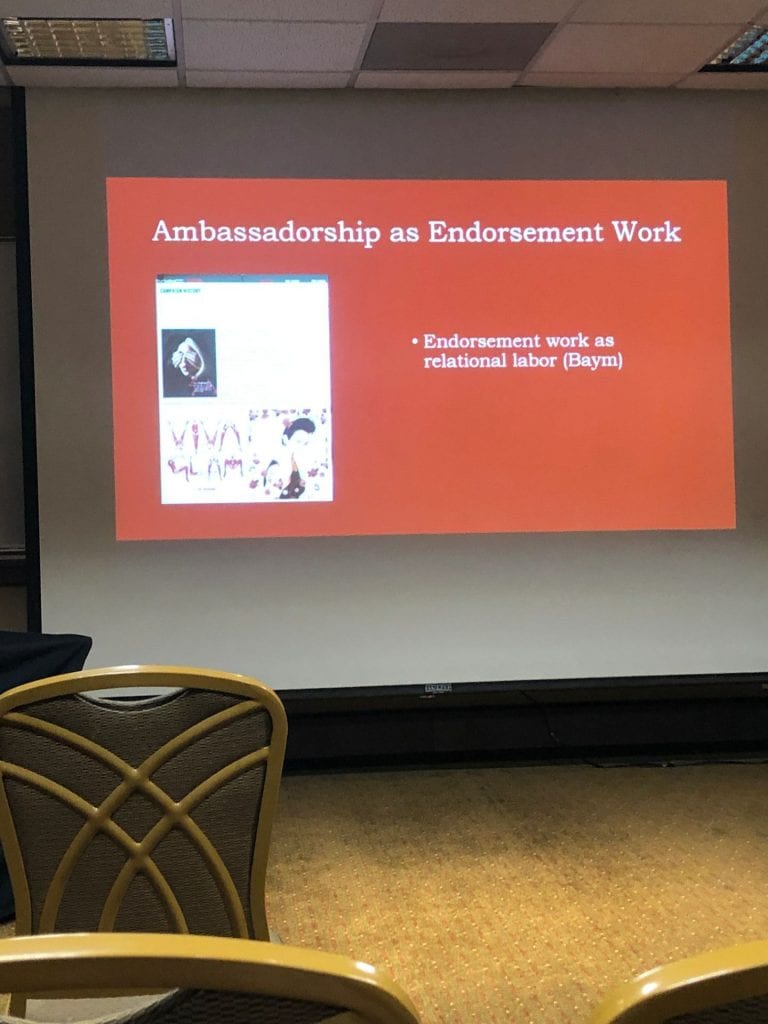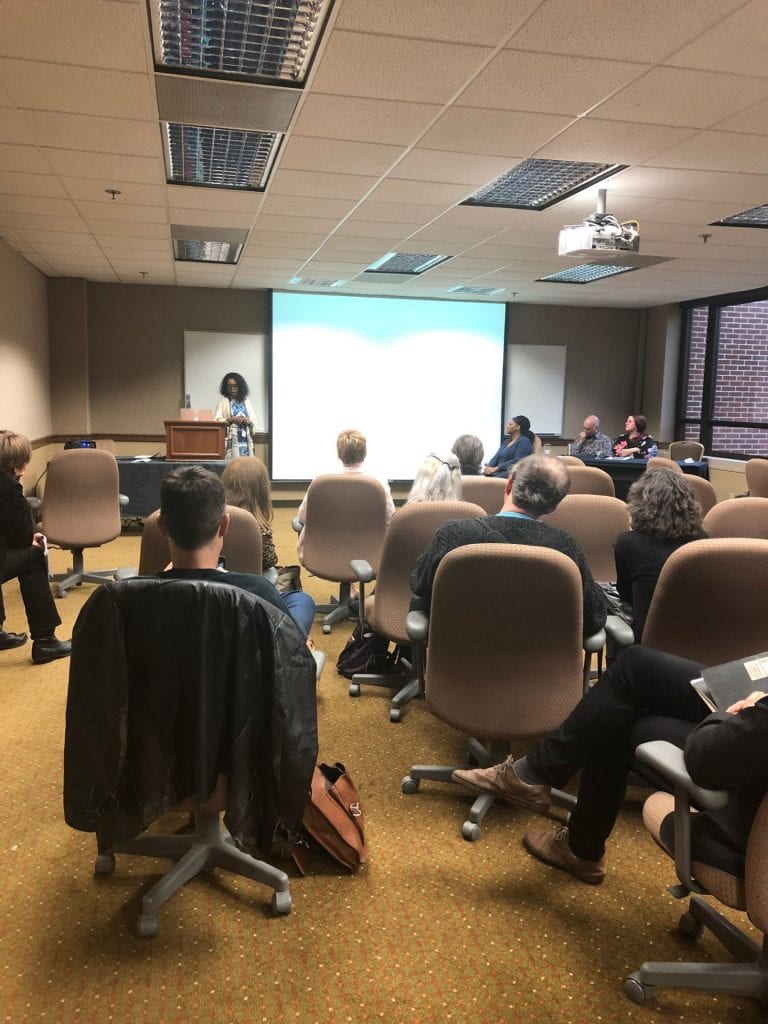With ample respect to the legacy of Elvis Presley, Memphis’ rich musical history offers more than Graceland and The King. From Stax Records and Isaac Hayes, from Sun Studio and Jerry Lee Lewis, from W.C. Handy and B.B. King and Johnny Cash and Carl Perkins and Justin Timberlake and a diverse collection of artists, the city drips in musical heritage and lore.

Amid that legacy, the University of Memphis’ Department of Communication & Film hosted a one-day conference last Saturday that examined the intersection of popular music and social justice.
Called “Balancing the Mix,” the conference drew an international field of experts who presented research on topics such as the historical musical resistance of over-policing, anti-war efforts by musicians, cross-cultural examples from hip-hop, and transgender and gender-resistant performances in country music.
More than 50 people from an impressive list of U.S. universities and colleges — including Princeton, New York University and the University of Massachusetts-Amherst — and campuses in Brazil, Finland, the United Kingdom, Canada, Switzerland and Denmark attended and presented papers at the conference. With them they brought an interdisciplinary set of backgrounds as historians, musical educators and experts in communication studies.
“What we wanted to do with this event is see how we could interact with more scholars across these fields, and how could we do a better job of of understanding what’s going on by talking to people who are working in those specific fields,” said Amanda Nell Edgar, assistant professor of communication studies at the UofM, who co-hosted the conference with Mark Duffett, who teaches media and cultural studies at the University of Chester in England. Interestingly, Duffett’s Ph.D. research was on the fans of Elvis Presley.
Among the conference’s highlights:
- Dianne Violeta Mausfeld, of the University of Bern, Switzerland, presented “Chicano Rap, Chicano Cinema & Social Justice During the Early 1990s.”
- The University of Memphis’ Michael Vicente Pérez, assistant professor in the Department of Anthropology, presented “Pearl Jam and Politics,” in which he argued that “the music and activism of Pearl Jam (is) a challenge to the claim that grunge music is an apolitical art form.”
- Mark Jackson, of Middle Tennessee State University, discussed social issues in “Killing a Cop: Blues Violence and Racial Justice.”
- Keith Gildart, of the University of Wolverhampton, England, presented “Keeping the Faith: Black America, Northern Soul, and the British Working Class 1971-1976.”
- Similarly, Kasi Williamson, of Fontbonne University in St. Louis, presented “Resisting Anti-Black Violence: Woody Guthrie’s Post-War Songs for Social Justice.”
- James Gabrillo, of Princeton University, offered perhaps the conference’s most unique paper, “Punk as Soundtrack to Gay Beauty Pageants in the Philippines.”
Besides Edgar and Pérez, others from the UofM also participated in the conference. Several chaired sessions, including Keven Rudrow (“Hip-Hop Resistance Across Time and Space” and “New Perspectives on Popular Music Resistance”), JoAnna Boudreaux (“Afro-Latinx Musical Forms and Social Consciousness”), assistant professor Andre E. Johnson (“Music and Erasure”), Cameron Brown (“Visibility and Performance”), Kalemba Kizito (“Popular Music and Black Identities”) and Dakota Yates (“Voices of Resistance”).
Johnson, of the Department of Communication & Film, also presented a paper, “Rhetoric, Religion, and the Repast: How a Church Celebrated the Life and Legacy of Prince.”
“There are conferences (here) all the time,” Edgar said, “but I have already gotten emails from people who said they really felt like they learned a lot because it was so interesting and interdisciplinary. I think it’s really great to have these people who study popular music coming to Memphis.”
— Phillip Tutor, CCFA media coordinator, potutor@memphis.edu










Be First to Comment